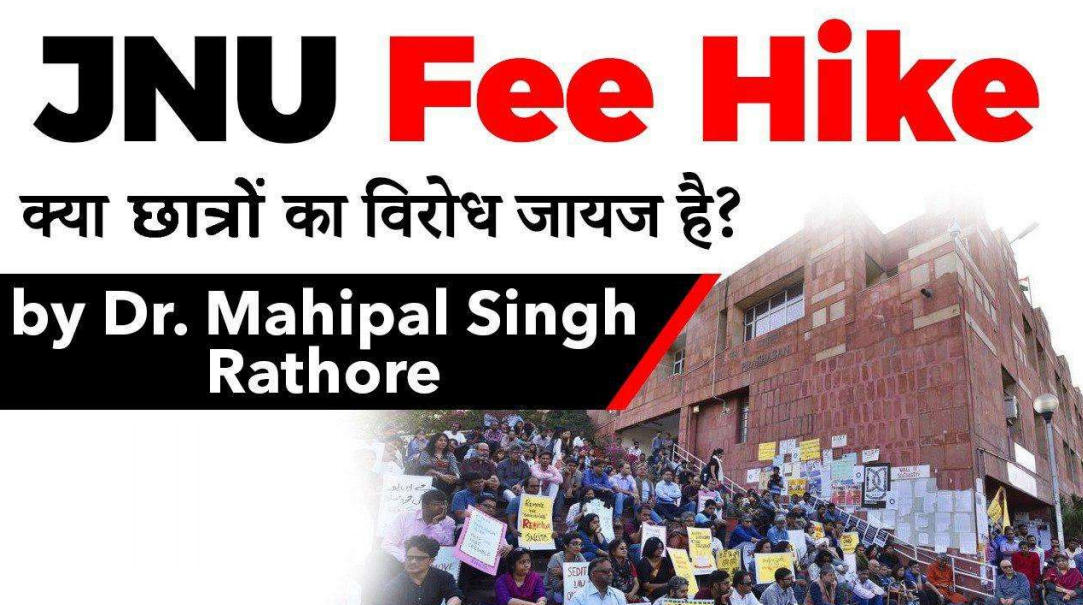Table of Contents

JNU – A brief bio
- Established by an act of Parliament in 1966, JNU came into existence in 1969
- Financed by the University Grants Commission (UGC) which comes under the Union Ministry of Human Resources Development.
- JNU was ranked number 1 in India by the NAAC
- Ranked no 3 in India by the National Institutional Ranking Framework, Government of India
- Received the Best University Award from the President of India in 2017.
- In 2019 there were 108,192 applicants for around 3,000 places
- While traditionally focused on the liberal arts and applied sciences, it has diversified towards engineering and management studies in recent years, with an MBA introduced in 2019
What is going on?
- Students of New Delhi’s Jawaharlal Nehru University (JNU) have been protesting against University administration since 28 October 2019
- The JNU Students’ Union (JNUSU) has held several protests since October 28 for multiple reasons – major one being the steep fee hike.
- The protests reached their peak on 11 November 2019

- Convocation ceremony with Vice President Shri V. Naidu as chief guest.
- Clashes with police took place – many protestors injured

Reasons for protest
- Inter Hall Administration (IHA) committee in its meeting held on 28 October 2019 decided to
- Hike the Hostel fee
- Various other charges levied upon students
- New hostel rules for visitors
- Permission required from warden for night out
- Dress code
- Restrictions on Library timings

Why the fee hike?
- The JNU administration’s rationale for the hike is that the fee hasn’t been revised for 19 years.
- JNU has been incurring charges of Rs 10 crore per annum on account of water, electricity, and service charges, which it has been paying out of general funds received from the University Grants Commission (UGC).
- Currently, students do not pay these charges.
- Increased electricity, salaries over past 2 decades.


- Two-seater room – Second year , hostel fee – Rs 26,500 plus mess charges (Rs 2,500 per month) + utility charges for water, electricity and WiFi separately ~ Rs. 60 -70 thousand per year
- Single seater room – First year student , hostel fee amount would be roughly Rs 42,100 per year + mess and utility charges ~ Rs.77- 85 thousand per year

Are students justified in their demand for low Hostel fees?
- 40% of students admitted to JNU in 2017 had a parental income of less than Rs 12,000 per month, as per the university’s annual report.
- Of the top 10 central universities in the country, students at JNU will now be paying the highest hostel fees.
- Similar or less fee in IITs and AIIMS



Partial roll back of fee
- To take care of students coming from weaker sections JNU Executive council decided that all the students belonging to below poverty line (BPL) category are eligible to be given 50 % of concession.
- All BPL category students receiving Non-NET fellowship and MCM scholarships will also be eligible for this 50% concession. (JRF/SRF excluded)
- The One Time (Refundable) Mess Security deposit for all categories of students has been rolled back from Rs. 12,000 to Rs. 5,500 as given below.
- Dress code and hostel visitor rules omitted from Hostel manual


- On 14th Nov.,Students had painted various messages for the vice chancellor inside the administration block





Latest Burning Issues | Free PDF






















 WhatsApp
WhatsApp